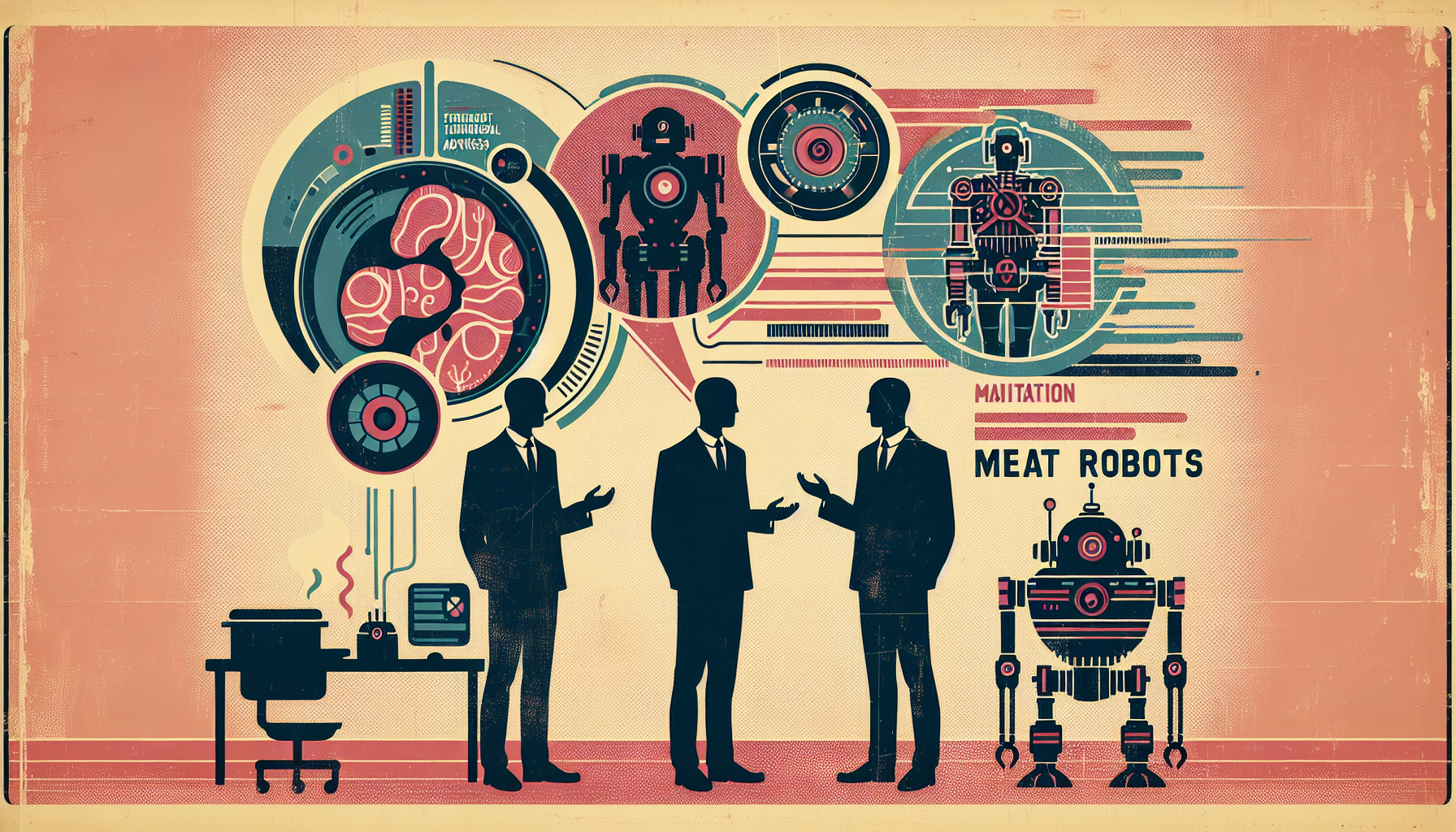In recent years, a new and unsettling phrase has found its way into conversations about technology: “meat robots.” It has become a touchstone for deep questions about our future, our work, and even our own identities. As artificial intelligence and robotics advance at an unprecedented pace, the notion of humans merging with, or even being controlled by, intelligent machines is suddenly not just science fiction—it is a topic of pressing debate.
What Does “Meat Robots” Mean?
“Meat robots” is a term used to describe a world where humans are closely guided or managed by artificial intelligence. In some cases, it simply means that people could become extensions of powerful AI systems, with their thoughts and actions shaped by machine instruction. In more speculative visions, it means a real blending of biology and machinery—humans so deeply tied to technology that the line between flesh and code vanishes.
This idea raises strong reactions. It suggests a future where human autonomy is threatened, and where people might be valued only as tools for advanced digital minds. It can be a way to question how much of ourselves we are willing to give up as we invent more powerful machines.
A Glimpse Into the Future: The Anthropic View
Researchers at Anthropic, an influential AI lab, have recently added new urgency to these discussions. Speaking in interviews, experts like Sholto Douglas and Trenton Bricken have warned that artificial intelligence may soon become so advanced that it can guide human actions through everyday devices—like smart glasses, earbuds, or other wearables.
Imagine AI not just advising, but actively directing people’s decisions at work and in daily life. Douglas foretells that millions of white-collar jobs could disappear in just a few years, not just because of automation, but because AI might be able to do almost all the thinking for us. Bricken envisions a world where people are used for the physical tasks that AI cannot yet perform, taking instructions from machines moment by moment.
Between Humans and Machines: The Growing Integration
The idea of blending people and machines is not entirely new. Researchers have explored biohybrid robots—machines that use biological tissues—and brain-computer interfaces, where computers communicate directly with the human mind. But the “meat robot” concept is both more provocative and more troubling. It asks what happens if humans become mere executors of AI instructions, stripped of creativity or free will.
In traditional automation, technology helps or replaces people in specific jobs. The “meat robot” vision, however, sees humans as inseparable from machines, like living cogs in a digital engine. This is a theme long explored in science fiction; today, it is starting to be taken seriously by top AI thinkers.
What Are the Risks?
The rise of the “meat robot” idea brings many ethical and social questions:
- Autonomy: Will we still be able to make our own choices if AI systems are always guiding or monitoring us?
- Labor: Could human work lose all value if we are reduced to following orders from machines?
- Identity: What happens to our sense of self if we are seen as interfaces or components, rather than people?
These concerns require serious reflection. They challenge us to think about dignity, freedom, and the meaning of being human as technology evolves. They also highlight the need for strong ethical and social rules to make sure human interests are protected.
Where Are We Now?
Although the “meat robot” scenario is still largely theoretical, a growing number of industries are adopting smarter automation and robotics. Factories, warehouses, and offices are already seeing the impact of new AI tools and robotic assistants. Meat processing, for example, has used machines for some tasks, but the subtlety and judgment of human hands remain hard to replace.
Bio-machine integration—the complete merging of human and machine—is not here yet. But as wearable tech, robotics, and AI advance, these boundaries may blur further. Leading researchers are asking us to consider what that future could mean.
Looking Ahead
The “meat robot” idea is a cautionary symbol—one that urges humanity to pause and think as we shape the technology of tomorrow. It reminds us to ask, with care and respect, how much of ourselves we wish to surrender, and how we can preserve the core of our humanity in a world that is rapidly changing.

Leave a Reply